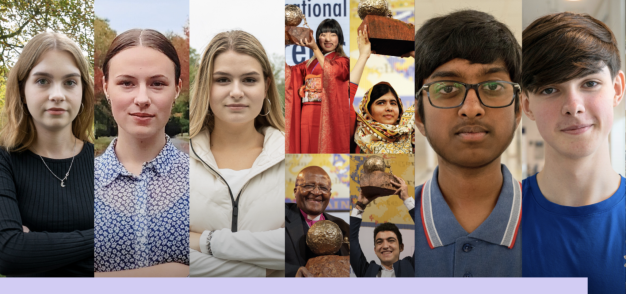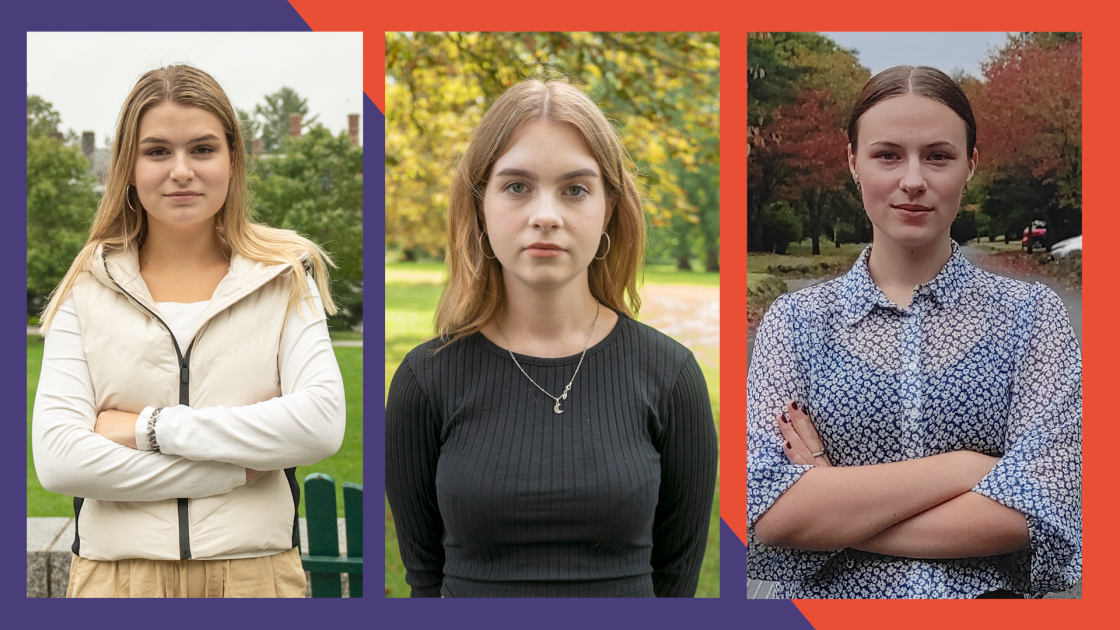
Finalists announced for International Children’s Peace Prize 2023
KidsRights, the international children’s rights organisation, has announced the three finalists for its 19th annual International Children’s Peace Prize.
This prestigious prize shines a light on some of the remarkable achievements of young ‘changemakers’ who are fighting courageously for children’s rights across the world.
It has been awarded annually by a Nobel Peace Prize laureate and in 2023, Ouided Bouchamaoui, the Nobel Peace Prize laureate 2015, will declare the winner.
The winner will receive the Nkosi statuette along with a study and care grant for their education. The recipient will also receive a project fund of €100.000 (Euros), half of which will support the winner’s cause, and half invested by KidsRights in other projects of other young changemakers fighting for children’s rights.
For the first time in the event’s history, the ceremony will take place on Friday 17 November in London, reflecting the global allure of the prestigious award. It will also be livestreamed, ensuring that the winner’s message reaches a global audience.
Marc Dullaert, Founder and Chair at KidsRights said: “This year has been extremely difficult for young people across the world. Yet the nominees for this year’s International Children’s Peace Prize award are a beacon of hope and an example to us all, demonstrating moral leadership and resilience by tackling the most pressing issues of our time.”
This year’s shortlist features hugely impressive nominees from Ukraine, the United Kingdom, and the USA.
- Sofia Tereshchenko, Anastasiia Feskova and Anastasiia Demchenko are 18 and 17-year-old girls from Ukraine who are on a mission to help children who have become refugees after the war, like themselves.
- Aaron Scarth is a 16-year-old boy from the UK who is fighting to destigmatise the public perception of children with parents in prison.
- Sri Nihal Tammana is a 14-year-old boy from the USA who is inspiring others around the world to recycle discarded batteries to protect the environment.

Sofia Tereshchenko, Anastasiia Feskova and Anastasiia Demchenko, who hail from Ukraine, were working together on a project to develop a mobile app when the country was invaded by Russia in 2022. Aged just 16 and 17 at the time, the girls were truly shocked by the stories of other children being forced to cross the border to other countries and become a refugee without any parent to rely on.
They immediately shifted the focus of their mobile app project, to build a solution that supported refugee children in need. Shortly after this, however, two members of the group became refugees themselves, moving to the UK and Japan while the third was able to stay in Ukraine. This only spurred them on in their efforts to help other refugee children – especially those in a worse situation than their own.
‘They have worked tirelessly’
Since then, the group have worked tirelessly together to raise seed money and build two apps. The first, ‘Refee’, is aimed at those aged 4-11 years, and helps them find all the information they need to feel secure in their new host country. This includes first steps, as well as communication advice so they can access basic needs such as safety, food and shelter. The second, ‘SVITY’, is targeted at those 16 years of age and above who are struggling to integrate in their new country by facilitating conversation between refugee children and those from host communities. Both apps are live and available to download from the App Store, and the group have plans to extend its use amongst all child refugees across the globe.
As of the end of 2022, 43.3 million children have been displaced as a consequence of conflict and violence across the world, infact 40 percent of all refugees are children.
Aaron Scarth

At the age of 16, Aaron, who is from an area of high social and economic deprivation in Liverpool, UK, has already had to move home and school for his own safety after experiencing violence from other members of society due to having a father in prison. As such, he has spent the last 6 years fighting for the rights of children of prisoners around the world.
Set on removing the stigmatisation, discrimination and bullying that he, and other children in his situation face, he has spoken at numerous public events and his hope for change is inspiring real action across the UK. In 2018, he helped rewrite the Council of Europe Recommendations concerning children of imprisoned parents, to ensure it was available in child-friendly language. He also took on the role of Lead Consultant for the development of the Child Impact Toolkit for children of prisoners, which is now relied upon across the country and endorsed by the UK’s Children’s Commissioner.
‘His goal is to help more children with a parent in prison across the world’
He hasn’t stopped there. His contributions to Liverpool City Council Child Friendly City Forums and Liverpool John Moores University Thinktank, around the effect of media on the safety of children whose parents are imprisoned, where a home address is shared, has led to the securing of funding for an in-depth research project run by LJMU School of Journalism. The goal of this is to create a ‘best practice guide’ for journalists when reporting the crime of an offender with dependents. His goal is to help more children with a parent in prison across the world – and he’s doing it one country at a time.
Globally, there are estimated to be more than 22.5 million children globally with at least one imprisoned parent, representing over 1 percent of the entire world’s population of children, while a further 19,000 children currently live in prison with their mother. 312,000 children in the UK and 800,000 in the EU currently have incarcerated parents too.
Sri Nihal Tammana

Sri, from New Jersey, USA, is already a leading environmental campaigner and the founder of a non-profit organisation at the age of 14. After being disturbed and saddened by an incident where a lithium battery exploded at a landfill leading to a big fire and huge environmental loss, he decided to find a way to avoid this ever happening again in the future.
His non-profit, Recycle My Battery, promotes and facilitates the proper recycling of the 15 billion batteries that are discarded each year. Since 2019, his efforts have already led to the collection and recycling of over 250,000 batteries, keeping them from entering landfill. The organisation now operates across the USA, India, Switzerland and Canada by placing battery bins in schools. Nihal also took the initiative of negotiating a partnership with Call2Recycle, the largest battery recycling organisation in North America, and FedEx which transports the bins from schools to Call2Recycle free of cost.
‘He is already a leading campaigner’
Understanding the real impact young people can have when they work together, Nihal created Recycle My Battery to be entirely run by volunteer school children. Now, over 350 work as members of its global network and over 10,000 have committed to recycling and are further spreading the crucially important environmental message. The ultimate goal for Nihal and Recycle My Battery is simple – not to rest until the number of discarded batteries changes from 15 billion a year, to zero.
Only five per cent of the world’s lithium-ion batteries are thought to be recycled across the globe, representing eight million tonnes of waste, creating dramatic environmental implications.
The prestigious International Children’s Peace Prize was launched in 2005 during the World Summit of Nobel Peace laureates in Rome, chaired by Mikhail Gorbachev. The International Children’s Peace Prize is the most important and prestigious youth prize in the world. It is awarded annually to a child who has made a significant contribution to advocating children’s rights and improving the situation of vulnerable children. The message of the young winner is broadcasted by international media and reaches hundreds of millions of people globally.
Click here for more information about the work of KidsRights.




